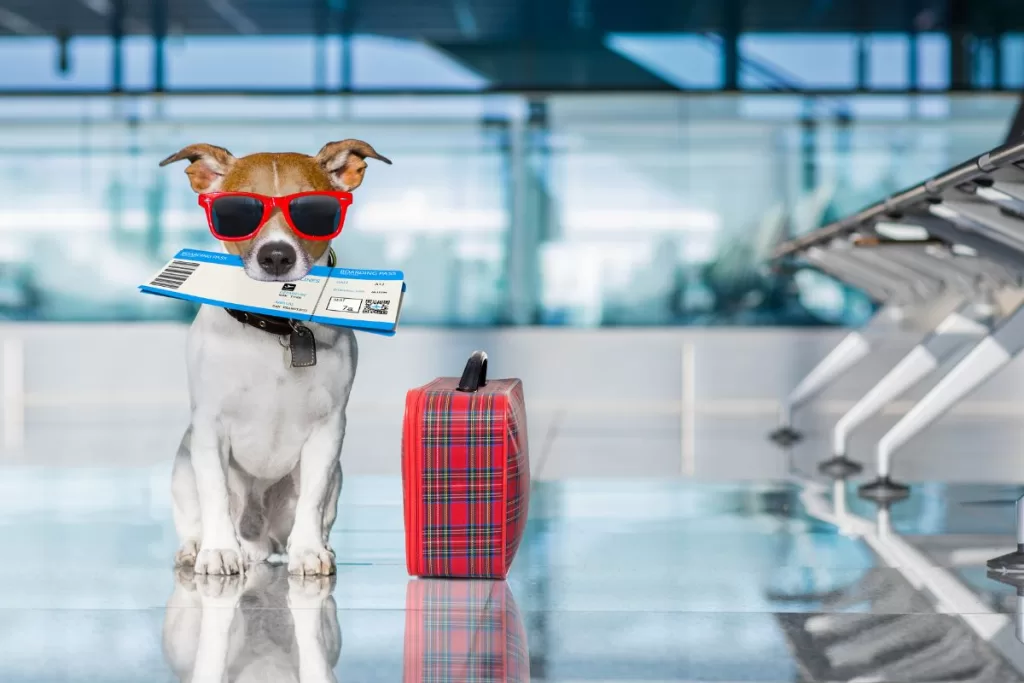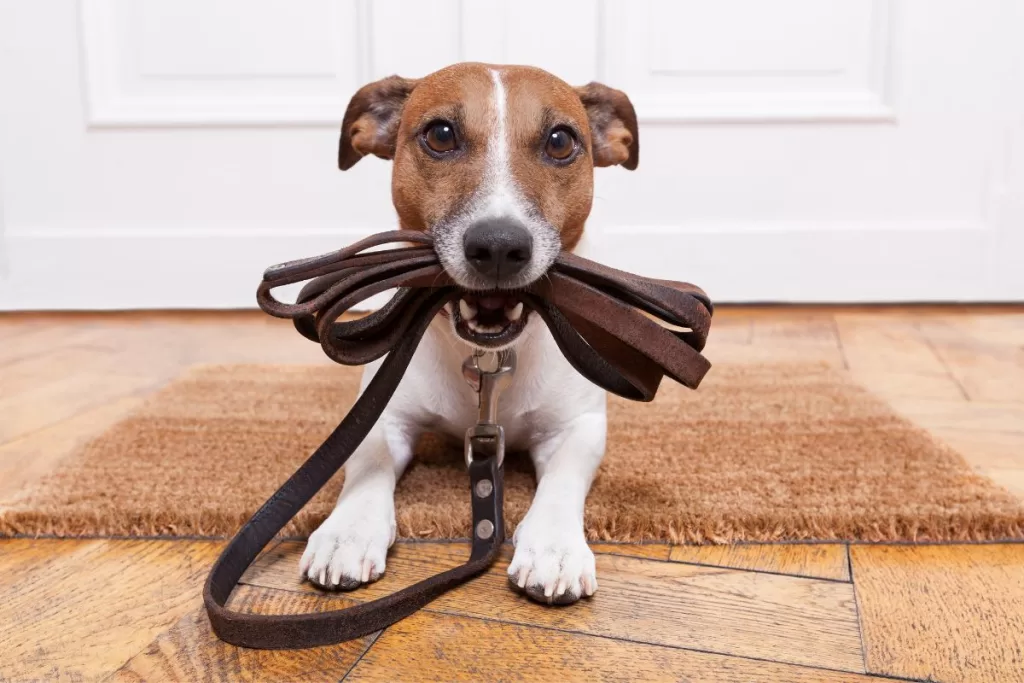What age can you board a puppy and for how long?
Bringing home a new puppy is an exciting experience. Those first few weeks are filled with joy, laughter, and countless adorable moments. However, there may come a time when you need to leave your furry friend behind, whether for work, travel, or other commitments. This is when the question arises: at what age can you board a puppy and for how long? In this blog post, we’ll explore the key factors to consider when deciding to board your puppy, including the age at which it’s appropriate, the duration of their stay, and ensuring peace of mind throughout the process.
We also take a look at other alternatives such as hiring a pet sitter or using a petting sitting service. Or you can consider family members and be like me and fly your sister out every time your dog needs to be watched. Doggy Daycare is also a great way to get your pup ready for an overnight somewhere else.

The First-Time Puppy Owner Dilemma
For first-time puppy owners, the prospect of leaving your beloved furry companion behind can be daunting. The bond you’ve formed with your puppy is strong, and the idea of being separated can be emotionally challenging. I remember the first time I left Wes with someone other than a family member wasn’t until he was like 8 years old and I still cried like a baby when I dropped him off!!
However, there are situations where you may need to board your puppy, such as business trips or family vacations. In such cases, it’s essential to make informed decisions that prioritize your puppy’s well-being and ensure peace of mind while you’re apart.
Age Matters: When Can You Board a Puppy?
The appropriate age to board a puppy largely depends on their individual development and specific needs. Generally, puppies can be boarded starting at around 12 weeks of age. This is a crucial milestone because it aligns with the completion of their first round of shots, including vaccinations that protect against common puppy illnesses.
First Rounds of Shots: A Prerequisite
Before considering boarding your puppy, ensure that they have received their first rounds of vaccinations. Typically, these vaccinations include protection against diseases like parvovirus, distemper, and adenovirus. These vaccinations are administered in multiple rounds during the early weeks of your puppy’s life. The first set of shots are usually given around 6-8 weeks of age.
Waiting until your puppy has completed their initial vaccinations is essential for their safety. Young puppies are more susceptible to various diseases. A puppy’s immune system is not fully developed until they are a bit older. By waiting until the vaccinations are complete, you can reduce the risk of your puppy contracting contagious illnesses in a boarding environment.
Kennel Cough: An Additional Vaccination
In addition to the standard vaccinations, it’s also crucial to ensure your puppy is protected against kennel cough. This disease is also known as canine infectious tracheobronchitis. Kennel cough is a highly contagious respiratory infection. Unfortunately, the disease can spread easily in boarding facilities where dogs are in close proximity. Most reputable boarding facilities will require proof of kennel cough vaccination. Make sure your puppy is up to date on this as well.
Proof of Vaccination: A Requirement
All reputable boarding facilities and dog sitters will require proof of vaccinations and, in some cases, kennel cough vaccination. Make sure you have all the necessary documents and records readily available. This will help to ensure a smooth and hassle-free boarding experience for your puppy.

Consider Your Puppy’s Individual Needs
While 12 weeks is a general guideline, it’s essential to consider your puppy’s individual development. You should also consider their temperament when deciding when to board them. Some puppies may be more resilient and adaptable than others. While some may have specific needs or health issues that require a more tailored approach. Always consult with your veterinarian to determine the best timing for boarding based on your puppy’s unique circumstances.
Do you have a social dog?
If your puppy has been around other adult dogs or even young dogs like themselves for socialization, they may adapt quickly to a boarding facility. Some dog boarding services also offer puppy-specific areas for their boarding. Dog boarding facilities usually have large outdoor play areas for your active puppy as well! Another benefit of boarding your puppy is some places will have a training program for your pup as well. This is important since your puppy is likely in a crucial stage of their development. They are likely still learning potty training, not biting, not chewing, listening, etc.
Is your dog a little nervous or sick?
On the other side of things, if your puppy has separation anxiety or has not had a lot of socialization before, dog boarding could be very overwhelming for them. For safety reasons and peace of mind for new dog owners, I always recommend trialing out a day at a boarding facility to make sure your pup can handle multiple days. If your puppy has special needs or health concerns, it’s a good idea to consider a dog sitter vs a facility. It is possible for pet owners to find private suites at dog boarding facilities. Keep in mind the average cost of these types of boarding services vs a dog sitter as well. We all want the best care for our pups, but maybe not as expensive as the trip we are taking!
Duration of Boarding
Now that you know when it’s appropriate to board your puppy, let’s discuss the duration of their stay. The length of time you can safely board your puppy depends on several factors, including their age, temperament, and your boarding options.
Short Trips: Weekend Getaways
For short trips or weekend getaways, boarding your puppy for a few days may be a feasible option, especially if your puppy is around 12-16 weeks of age. However, it’s essential to choose a reputable boarding facility that can provide the care and attention your puppy needs during your absence.
Extended Trips: A Longer Stay
If you need to be away for an extended period, such as a week or more, it’s advisable to consider alternatives to traditional boarding, such as hiring a dog sitter. Puppies, especially those under six months of age, thrive on routine and consistency. Being in a new environment for an extended period can be stressful for them.
A dog sitter who can care for your puppy in the comfort of your own home offers a more familiar and less disruptive experience. It allows your puppy to maintain their daily routine, reducing stress and anxiety. Plus, you’ll have peace of mind knowing that your puppy is in the hands of a responsible and caring individual. You can also find dog sitters who will allow you to drop your puppy off at their home.
Summary
In the journey of puppyhood, there may come a time when you need to be apart from your furry companion. Knowing when you can board your puppy and for how long is crucial for their well-being and your peace of mind. Remember to wait until your puppy has completed their first rounds of vaccinations, including kennel cough protection, before considering boarding. The appropriate age to board your puppy is typically around 12 weeks, but always consult with your veterinarian for personalized guidance. There may be age restrictions at boarding facilities as well that you will need to do research into as well.
Take the extra time to find the right fit for your dog’s needs when it comes to dog boarding or dog sitting while you are away from them. We have a great emergency form that you can fill out for any dog-sitting service or facility as well before you take off.
When it comes to the duration of their stay, short trips of a few days can be accommodated once your puppy is older. But for extended absences, consider a dog sitter who can provide care in a familiar environment. Ensure a smooth transition by gradually introducing your puppy to new experiences and environments. And, of course, always have proof of vaccination readily available for your chosen boarding option.
By making informed decisions and prioritizing your puppy’s well-being, you can ensure that both you and your furry friend have a positive and stress-free boarding experience, allowing you to enjoy your time apart with peace of mind
